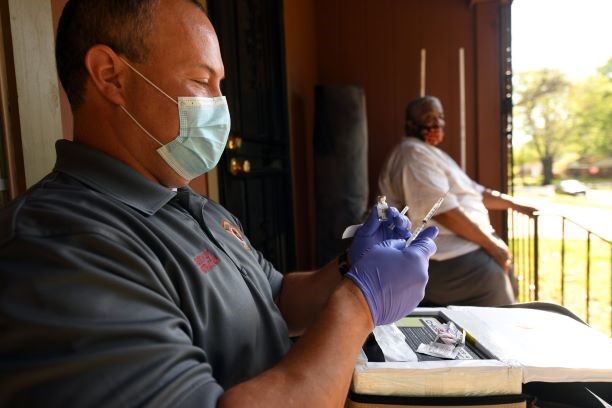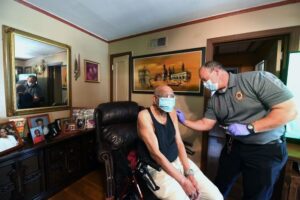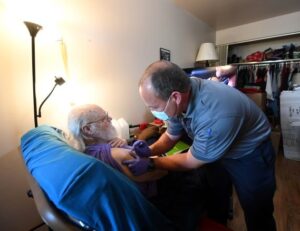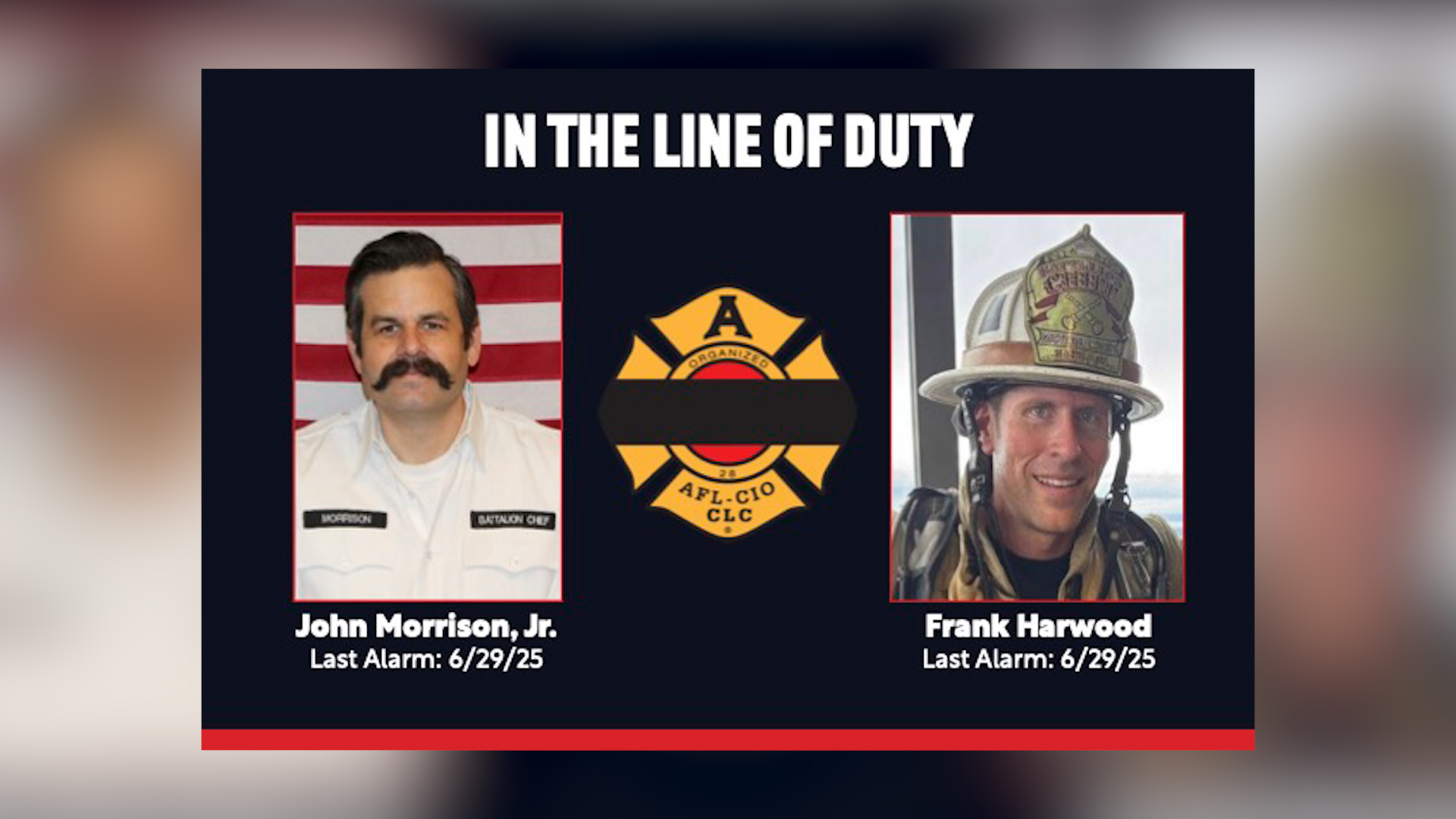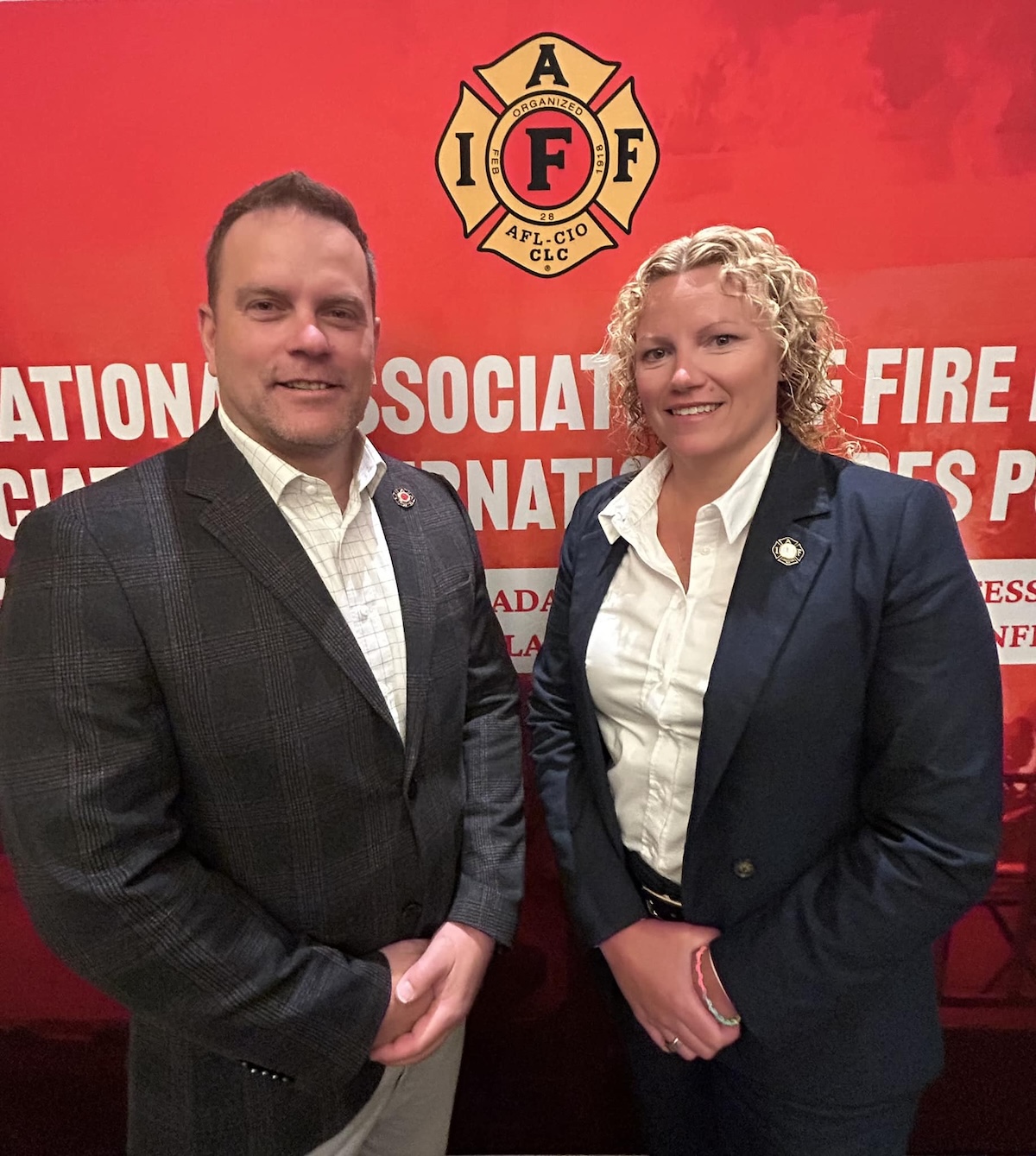Memphis, TN Local 1784 members are working with the fire department’s Healthcare Navigator Program to administer hundreds of COVID-19 vaccines each week to Shelby County citizens who are homebound or have difficulty reaching one of the county’s vaccine centers.
“Our members have been on the frontlines of this pandemic from patient transport to testing. Now they continue to deliver the best possible service by ensuring everyone has access to the vaccine, if they want it,” says Local 1784 President Tom Malone. “I am very proud of the hard work they continue to do to help all of us get closer to ending this pandemic.”
The mobile paramedicine program began in 2015 with a mission to better serve citizens with health conditions who might otherwise need to make multiple visits to the emergency room each month, as well as citizens with urgent behavioral health needs.
During the COVID-19 pandemic, Local 1784 members are working overtime to expand the Healthcare Navigator mission to provide access to COVID-19 vaccines to those who might not otherwise have it.
“Depending on demand, we have between two and four mobile units visiting homebound patients inside Memphis city limits and throughout Shelby County,” says Kevin Spratlin, a Local 1784 member who oversees the Healthcare Navigator Program. “Because we have provided medical care to many of these citizens before, they trust us to provide this life-saving service as well.”
Since some of Shelby County is outside Memphis fire fighters’ normal jurisdiction, one of the obstacles was creating service routes that would allow Local 1784 members to reach as many homes as possible each day.
“Once you have opened the vaccine vial, you don’t want to waste a single drop, so we reached out to FedEx, which is headquartered right here in Memphis to assist us,” says Spratlin. “FedEx is able to take the addresses we give them and produce the time-saving routes we need.”
In addition to serving the homebound, Healthcare Navigator has also administered vaccines to staff and residents of adult care facilities and have hosted pop-up vaccine clinics in neighborhoods with low vaccine rates.
